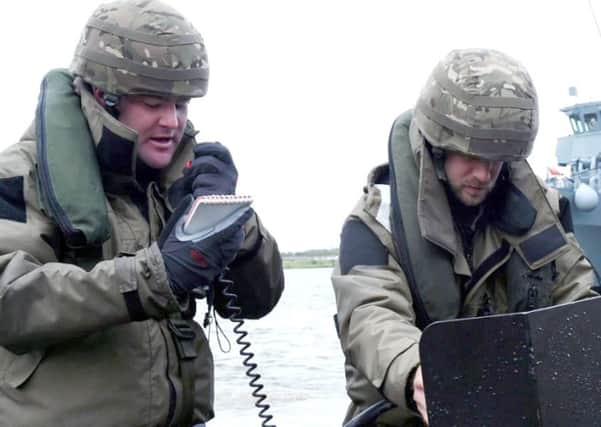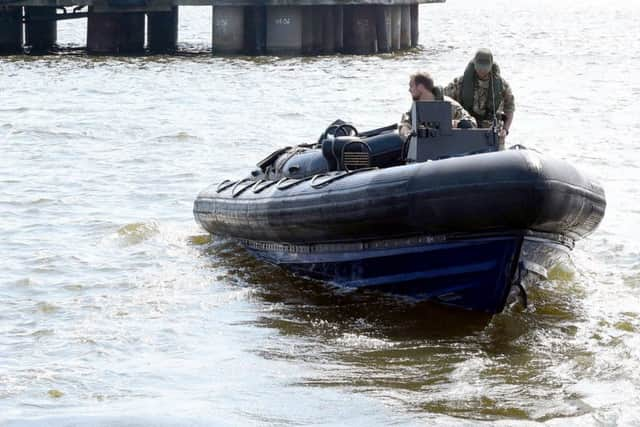Elite Royal Navy divers from Portsmouth show off their explosive expertise


Divers from the Fleet Diving Unit 2 have spent a month in the Baltic, teaching foreign forces how to deal with the latest home-made bombs – even helping to disarm a deadly Second World War mine near a key Lithuanian port.
The 17-strong team from Portsmouth, who are experts in making sure harbours, jetties and port facilities are safe, took their state-of-the-art kit to Klaipeda.
Advertisement
Hide AdAdvertisement
Hide AdIn the first week of Exercise Open Spirit the divers showed the Lithuanians how to deal with explosives at sea.


Divers also passed on key tips on tackling bombs on land honed through their experiences on deployment in Afghanistan, where they dealt with a range of improvised explosive devices.
And the Lithuanians had a chance at wearing the cumbersome – but lifesaving – bomb disposal suit used when operators make the ‘long walk’ to disarm a bomb.
After being put through their paces, the Anglo-Lithuanian team joined forces with other divers and minehunters from the USA, Canada, Poland, Estonia and Germany, to take on the live at-sea phase of the exercise.
Advertisement
Hide AdAdvertisement
Hide AdAlthough more than 70 years have passed since the end of the Second World War the Baltic seabed remains littered with unexploded ordnance from minefields sown by the warring nations to bombs dumped by aircraft.


And Klaipeda itself – which used to be known as the German city of Memel – was the scene of bitter fighting over the winter of 1944-45.
It fell to the FDU2 divers to identify and destroy any historic ordnance they came across. They came across more than 20 contacts – two of which turned out to be mines.
Collectively the Open Spirit crews found 15 mines, one just off the entrance to the port of Klaipeda which is both Lithuania’s main port and home of her navy.
Advertisement
Hide AdAdvertisement
Hide AdThe month in the Baltic was a great success for the Royal Navy divers, normally based at Horsea Island.
Lieutenant Rob Tristram said the exercise had improved international links.
‘Our deployment to Lithuania proved to be successful,’ he said. ‘The unit contributed very effectively to Open Spirit.
‘We also formed some close links with the Lithuanian Navy who hosted both the exercise and training effectively and in a most hospitable manner.’